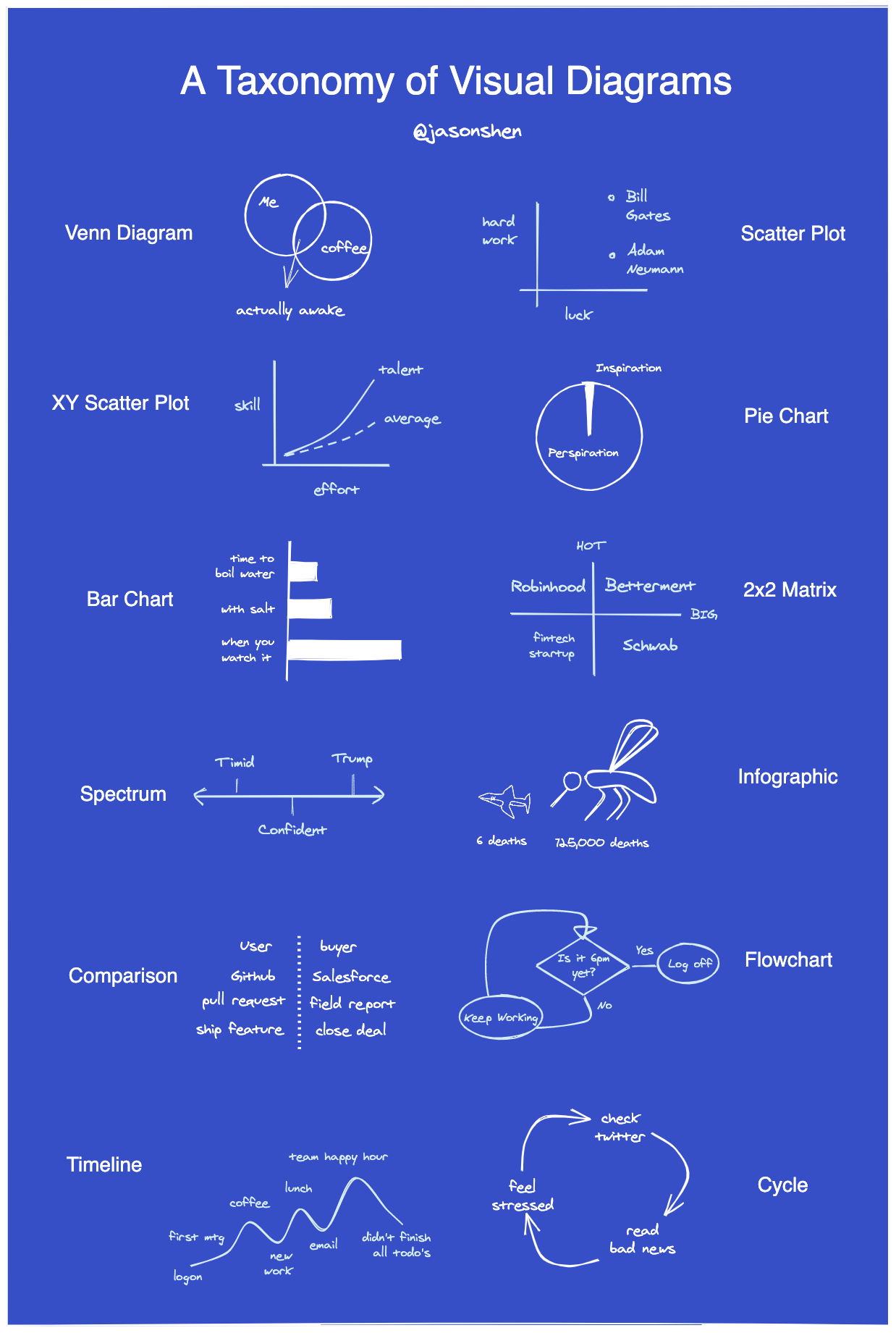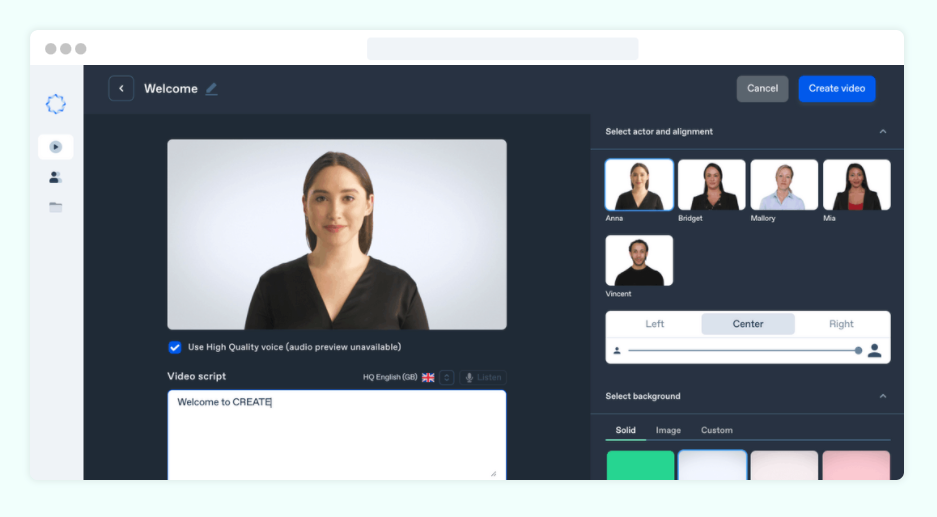Hey friends,
This is the 24th edition of Making Connections, where we take a random (illustrated) walk down tech, fitness, product thinking, org design, nerd culture, persuasion, and behavior change.
Last week I talked about switching things up YET AGAIN and here we are with the new format: one visual, one quote or thought, one thing to check out.
Visual: 12 ways to convey information visually
So apparently Venn diagrams were used as far back as the 13th century, but 1880, a dude name John Venn reintroduced the concept in his paper "On the Diagrammatic and Mechanical Representation of Propositions and Reasonings". It took about 30 years for people to really start referring to them as Venn diagrams though.
Anyway, inspired by my tweet thread, I documented 12 visual formats that I can lean back on when I’m looking for a way to a way to express an idea.

Words: How TV Shows Taught Him How to Live
I came across a really thoughtful essay by an adopted working-class kid turned Cambridge PhD student who explored how watching Fresh Prince of Bel-Air (upcoming remake referenced in MC#016) and The West Wing shaped his understanding of culture and future aspirations.
The more I watched, the more the characters reminded me of the Warrior-Scholar Project tutors. Characters like Josh Lyman and C.J. Cregg were educated at elite universities and, despite their flaws, tried to live up to their moral principles. They engaged in fierce debate with political foes, but respected them too. The characters who staffed the Bartlet administration were highly educated, extremely witty, clever and idealistic. It made me wonder: Was this show so popular among elite college graduates because they saw aspirational versions of themselves in it? And if this was how they aspired to be, was this also how I should aspire to be?
Early on, I thought of television as a window into another world. I would watch it to escape the one I was in, and to learn more about others. Later, though, it became more like a mirror. The more I saw, the more I learned what I wanted; the shows I chose to watch, in turn, reflected my desire to build a better life for myself, and I took my cues from them on how to construct it. Either stay like this, I thought, as I gazed at the TV, or try to live like that.
Everything I Know About Elite America I Learned From ‘Fresh Prince’ and ‘West Wing’ (NYTimes)
My Dad frowned on my watching TV as a kid if he deemed the show frivolous (Fresh Prince would fall in that category) while he’d probably approve of West Wing because it offers moral lessons.
I got into West Wing after college and went through several seasons. What I learned most was the art of verbal jousting (a Sorkin favorite) and how the person with the best answer “wins”. I think the show is best paired with House of Cards, which takes the other side, of how corruption, naked ambition, and backstabbing play into politics. The show takes on a whole new meaning when you consider the Kevin Spacey’s subsequent scandal.
Check Out: Synthesia - Generating Presentation Videos from Text

While still in its infancy, I think this product, which recently made waves on ProductHunt, is in a position to change how people communicate. They can turn written text into spoken word AND a person’s face animated to match the speaking. The voice and face don’t always match (in a I-don’t-think-that-person-would-sound-like-that) and it’s still uncanny valley. But it’s passable for basic information (intro to a team or a product) and will only get better.
They’re letting you generate a video for yourself (though there seems to be a backlog) if you want to try it.
Synthesia: AI Video Generation Platform
Welp, that’s a wrap! Question for you:
What’s secretly your favorite piece of jargon? Like the word or phrase you actually like saying?
-Jason

